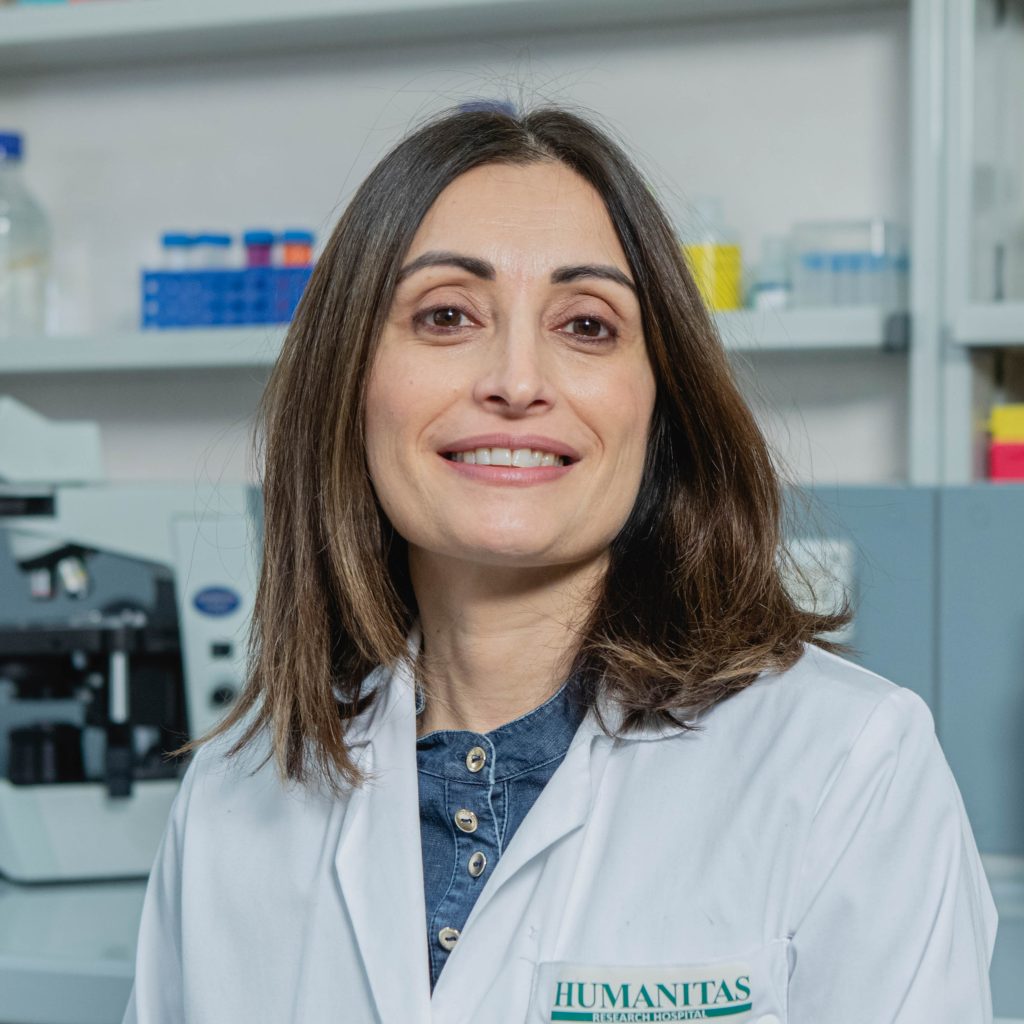Stefania Vetrano is head of unit at Humanitas Research Hospital, where she leads the Laboratory of Gastrointestinal Immunopathology, and associate professor in Applied Biology at Humanitas University.
She graduated at University la Sapienza of Rome in 2002, and in the same university she obtained the specialization in Clinical Pathology in 2007. During her specialization training Vetrano spent one year in London at St Thomas’s hospital working on immunological mechanisms involved in celiac disease. In 2010 she defended her PhD in Experimental pathology and neuropathology at the University of Milan.
Since 2006-to date her scientific interest is focused on new potential mechanisms involved in Inflammatory Bowel Disease (IBD) pathogenesis as documented by several papers published in this field, with a particular interest to the pathogenic role of non-immune cells, key players in chronic inflammation. She has explored the functional role of vascular biology in the intestine unveiling the augmented pathological angiogenesis in the inflamed mucosa of IBD patients, the link between coagulation and vascular homeostasis in triggering intestinal inflammation, and the role of epithelial and endothelial junctional molecules in controlling the intestinal epithelial barrier integrity and the recruitment of inflammatory immune cells. Moreover, she dedicated her research in the field of colitis-associated CRC and molecular pathways involved in intestinal tumorigenesis. Driven by her interest in nutrition, she has pursued a master’s degree in nutrition science to improve her knowledge in foods and dietary components.
Currently, she is the scientific co-coordinator of an European consortium ImmUniverse -IMI- project, aiming at improving the understanding of immune-mediated diseases by a multi-omic approaches. In ImmUniverse she is a Leader of one workpackage (WP3) aiming at the validation of new approach for disrupted liquid biopsy. Since 2006 to date she has been tutor and mentor of six PhD students and 12 ungraduated students in medicine, biology, biotechnology and chemistry.
